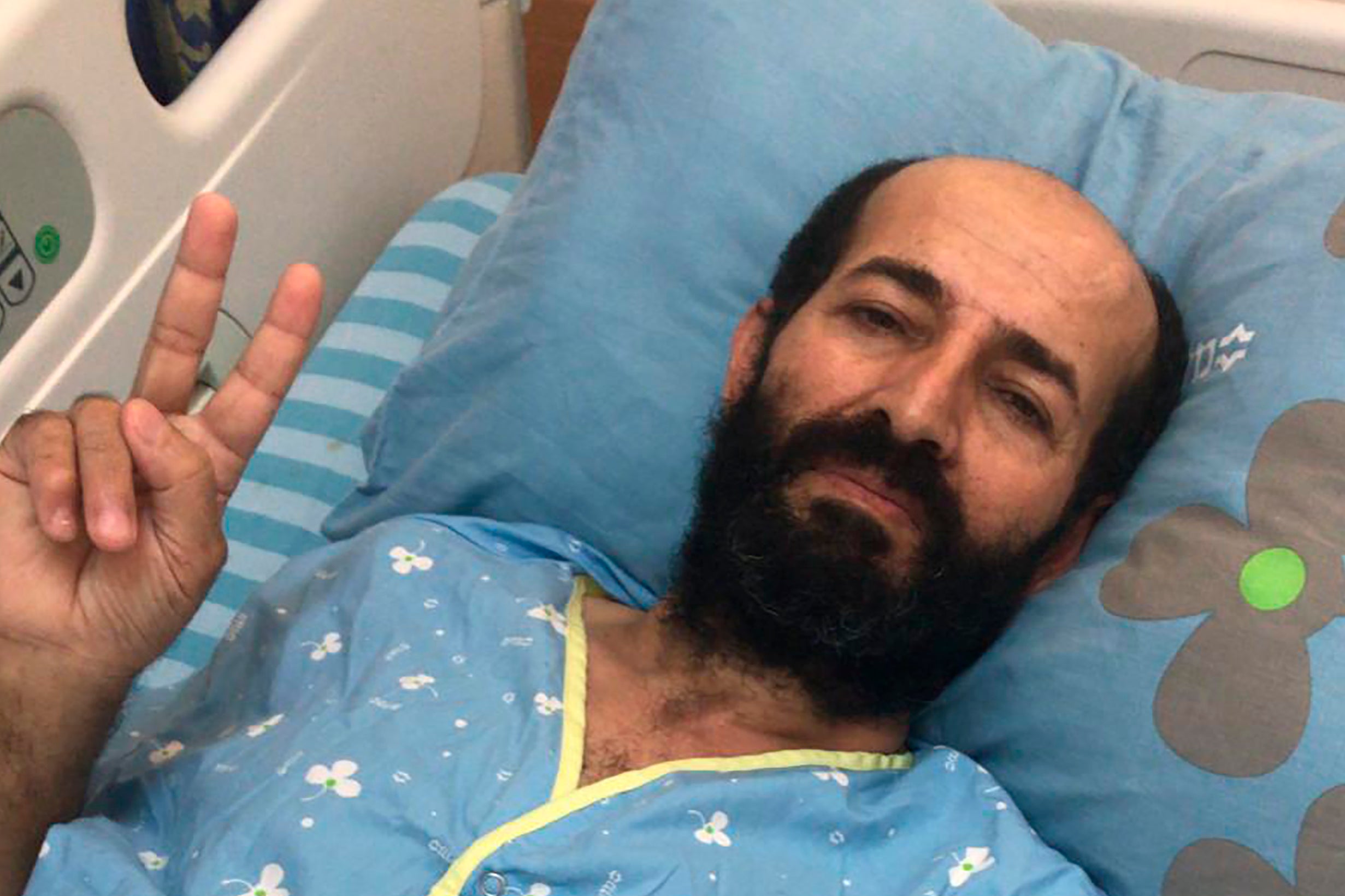Your support helps us to tell the story
From reproductive rights to climate change to Big Tech, The Independent is on the ground when the story is developing. Whether it's investigating the financials of Elon Musk's pro-Trump PAC or producing our latest documentary, 'The A Word', which shines a light on the American women fighting for reproductive rights, we know how important it is to parse out the facts from the messaging.
At such a critical moment in US history, we need reporters on the ground. Your donation allows us to keep sending journalists to speak to both sides of the story.
The Independent is trusted by Americans across the entire political spectrum. And unlike many other quality news outlets, we choose not to lock Americans out of our reporting and analysis with paywalls. We believe quality journalism should be available to everyone, paid for by those who can afford it.
Your support makes all the difference.Israel has refused to release a Palestinian detainee feared to be “on the verge of death” after being on hunger strike for nearly 80 days.
Maher al-Akhras, 49, from Silah al-Dahr village in the West Bank, has been held in administrative detention since his arrest in July - a policy used by Israel to detain suspected fighters without charge.
Israeli authorities accuse him of belonging to Islamic Jihad, a claim Mr Akhras denies.
Rights groups and politicians have sounded the alarm over the rapid deterioration of his health, with the father of six hospitalised at Kaplan Medical Center in Rehovot since September. His wife, Taghreed, has said he is only drinking water and is now “too weak to speak”.
Mr Akhras’ attorney, Ahlam Haddad, has filed an emergency petition with Israel’s High Court calling for his release, warning that he has already sustained “irreversible damage”.
The court rejected the appeal at a hearing on Monday, only agreeing to not extend the administration detention.
“He’s in danger of sudden death that could come at any moment now,” Ms Haddad told the court, according to local media.
“He is on hunger strike against administrative detention, in which the prisoner and his lawyer lose all tools to protect him. We have no access to confidential information, no possibility of cross-examining the source of that information.”
B’Tselem condemned the court’s decision as “appalling” and relying on “an ambiguous legal solution”.
“The [hunger] strike has left al-Akhras on the verge of death. Despite his dire condition, Israel is insisting on keeping al-Akhras in custody," the Israeli rights group said in a statement.
Dr Ahmad Tibi, a member of Israel’s parliament (MK) who was at the hearing, said he was “very worried” about Mr Akhras’s condition, having visited him on several occasions.
“We are totally against administrative detention. They haven’t presented any evidence against him,” he told The Independent.
“This is anti-democratic and poses a real danger.”
Administrative detainees do not know when they will be released, as the Israeli military can extend the detention order indefinitely.
Palestinian Prime Minister Mohammad Shtayyeh has demanded Mr Akhras’s immediate release.
On Monday, dozens attended a rally in the occupied West Bank city of Ramallah to support of Mr Akhras, with Palestinian groups calling for more demonstrations to be held during the week.
MK Yousef Jabareen called on the international community to take swift action.
“We are extremely worried about the dangerous deterioration of al-Akras’s condition. We demand freedom for him and for all political prisoners,” he said.
More than 350 Palestinians were being held under administrative detention orders as of August, including two minors, according to B’Tselem.
Spokesperson Amit Gilutz told The Independent the policy was one of the most extreme measures used by Israel against Palestinians.
“The responsibility for what happens next lies with the Israeli officials who can still order al-Akhars' release and thus prevent his continued deterioration and possible death.”




Join our commenting forum
Join thought-provoking conversations, follow other Independent readers and see their replies
Comments